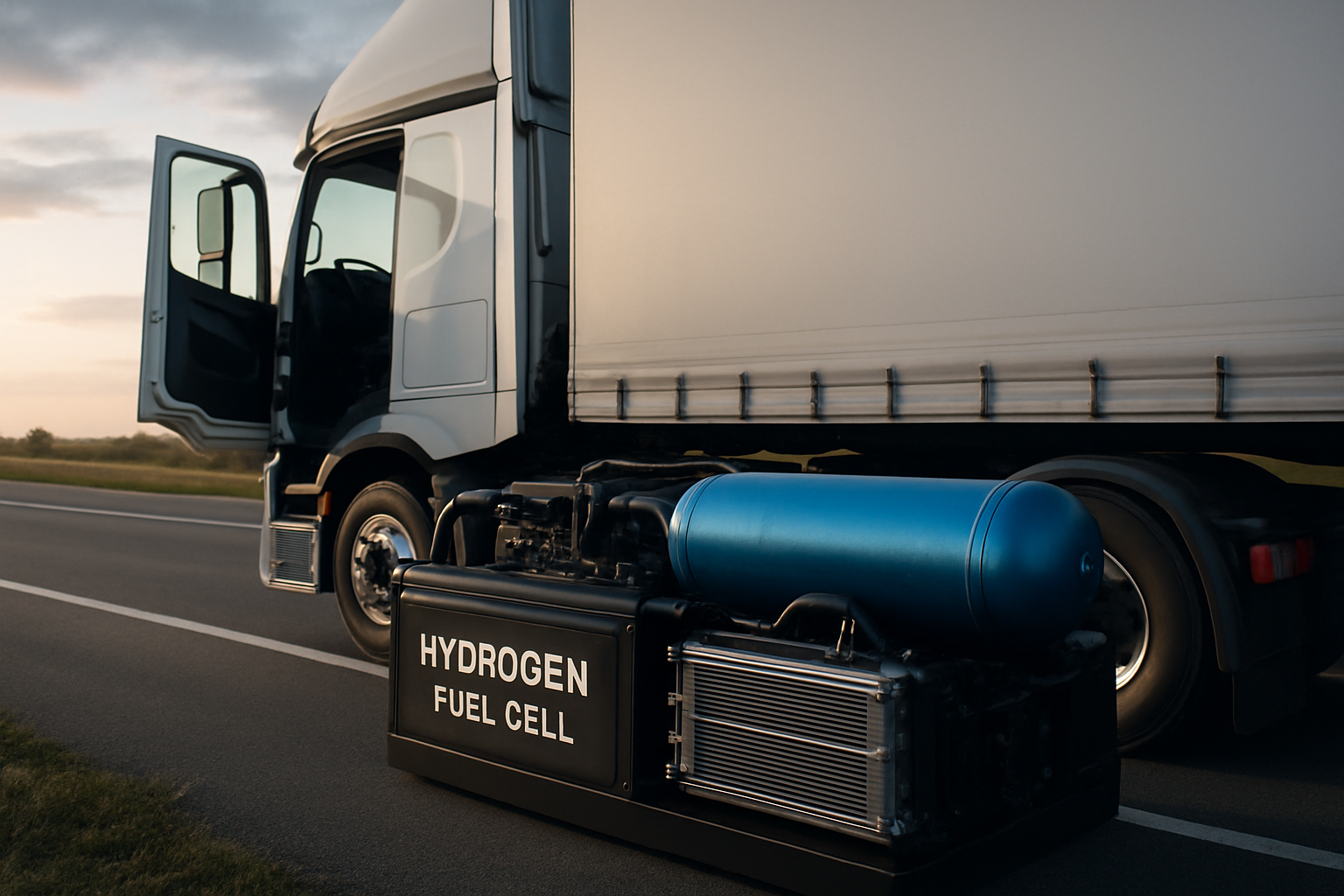Exploring the Potential of Hydrogen Fuel Cell Trucks
The future of long-haul transportation is poised for a dramatic shift as hydrogen fuel cell technology emerges as a promising alternative to traditional diesel-powered trucks. This innovative propulsion system offers a compelling blend of zero-emission operation, extended range capabilities, and rapid refueling times, making it an increasingly attractive option for fleet operators and environmentally conscious businesses alike.

The Science Behind Hydrogen Fuel Cells
At the heart of hydrogen fuel cell trucks lies a complex yet elegant system that converts chemical energy into electrical power. The process begins with hydrogen stored in high-pressure tanks onboard the vehicle. This hydrogen is fed into a fuel cell stack, where it undergoes a chemical reaction with oxygen from the air. This reaction produces electricity, which powers the truck’s electric motors, as well as water vapor, which is harmlessly released into the atmosphere.
The fuel cell stack consists of multiple individual cells, each containing an anode, cathode, and electrolyte membrane. As hydrogen flows through the anode, it’s split into protons and electrons. The protons pass through the electrolyte membrane to the cathode, while the electrons are forced to travel through an external circuit, generating electricity in the process. At the cathode, these components combine with oxygen to form water.
Advantages Over Traditional Diesel Trucks
Hydrogen fuel cell trucks offer several significant advantages over their diesel counterparts. First and foremost is their environmental impact – or lack thereof. With zero tailpipe emissions aside from water vapor, these vehicles can play a crucial role in reducing the transportation sector’s carbon footprint and improving air quality in urban areas.
Another key benefit is the potential for longer driving ranges compared to battery-electric trucks. Hydrogen’s high energy density allows for more energy to be stored in a smaller space, translating to fewer stops and increased productivity for long-haul routes. Additionally, refueling a hydrogen truck can be completed in a matter of minutes, similar to refueling a diesel truck, which is a significant advantage over the longer charging times required for battery-electric vehicles.
Current State of Hydrogen Fuel Cell Truck Development
Several major truck manufacturers have recognized the potential of hydrogen fuel cell technology and are actively developing and testing prototypes. Companies like Daimler, Volvo, and Toyota have unveiled concept trucks and are conducting real-world trials to assess performance, reliability, and efficiency.
These trials have shown promising results, with some hydrogen fuel cell trucks demonstrating ranges of up to 600 miles on a single tank. Moreover, the quick refueling times align well with existing logistics operations, minimizing disruptions to established routes and schedules.
However, the technology is still in its early stages, and widespread commercialization faces several hurdles. The most significant challenge is the lack of hydrogen refueling infrastructure, which is essential for the viability of long-distance trucking operations.
Infrastructure and Production Challenges
For hydrogen fuel cell trucks to become a practical reality, a robust network of hydrogen refueling stations must be established along major transportation corridors. Currently, such infrastructure is limited, with only a handful of stations operational in select regions. The development of this infrastructure requires significant investment and coordination between government agencies, energy companies, and truck manufacturers.
Another challenge lies in the production of hydrogen itself. While hydrogen is the most abundant element in the universe, it rarely exists in its pure form on Earth. Most hydrogen today is produced through a process called steam methane reforming, which, unfortunately, still relies on fossil fuels and produces carbon emissions. For hydrogen to truly be a zero-emission fuel, it must be produced through cleaner methods, such as electrolysis powered by renewable energy sources.
The Road Ahead: Overcoming Obstacles and Realizing Potential
Despite the challenges, the potential benefits of hydrogen fuel cell trucks are driving continued research, development, and investment in the technology. Governments around the world are implementing policies and incentives to support the adoption of zero-emission vehicles, including hydrogen-powered options. This support is crucial for overcoming the initial high costs associated with fuel cell technology and infrastructure development.
Collaboration between industry players is also accelerating progress. Joint ventures and partnerships are forming to share the costs and risks of developing hydrogen technology and infrastructure. These collaborations are essential for creating economies of scale that can bring down the cost of hydrogen fuel cell trucks and make them competitive with traditional diesel vehicles.
As the technology matures and infrastructure expands, we can expect to see more hydrogen fuel cell trucks on the roads. Their ability to offer long range, quick refueling, and zero emissions makes them an attractive option for a variety of applications, from long-haul trucking to drayage operations at ports.
The journey towards widespread adoption of hydrogen fuel cell trucks is just beginning, but the potential impact on the transportation industry and the environment is enormous. As we continue to seek sustainable solutions for moving goods across the globe, hydrogen fuel cell technology stands out as a promising path forward, offering a glimpse into a cleaner, more efficient future of long-haul transportation.





